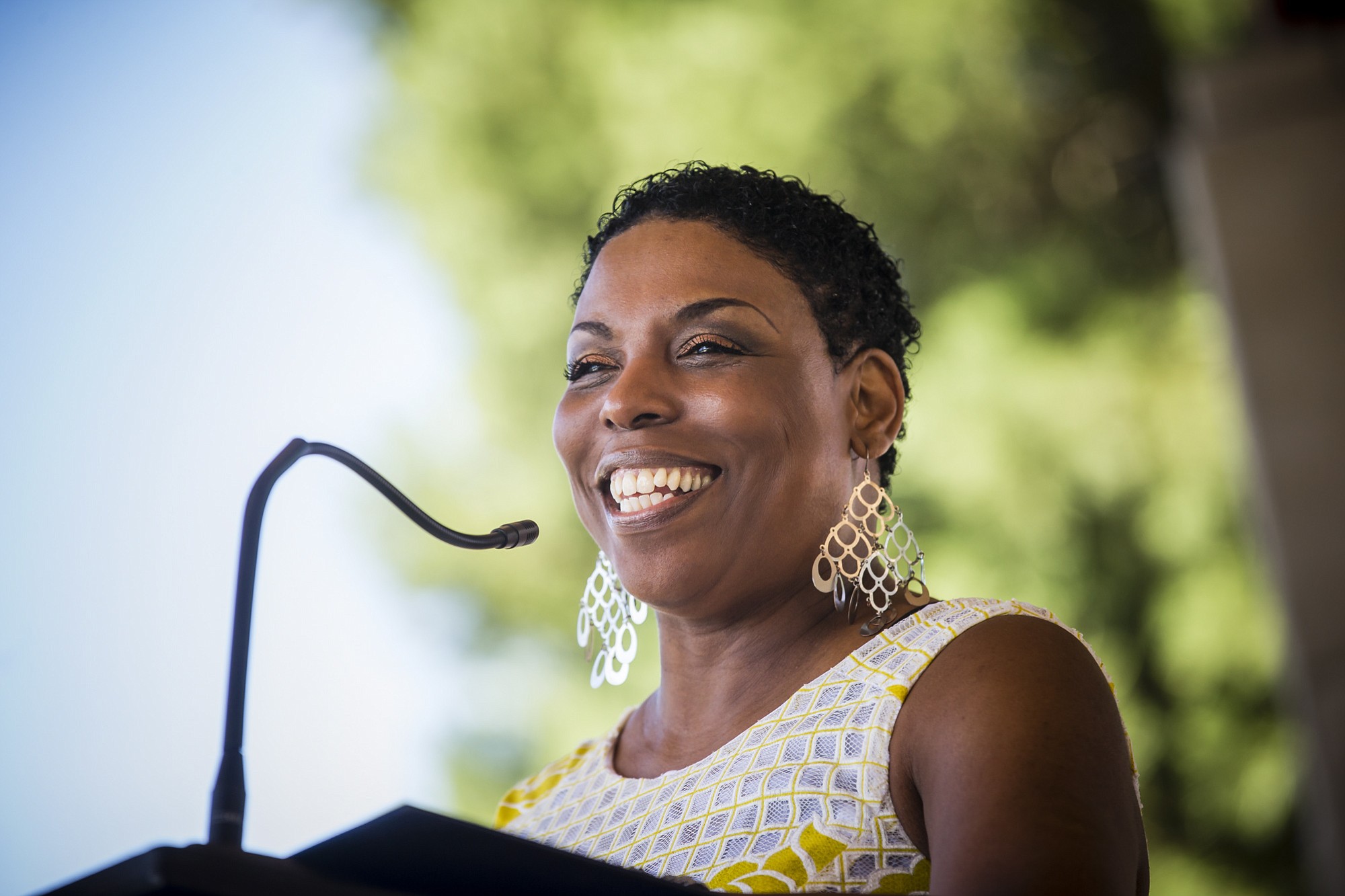With racial issues plaguing national headlines, organizers of this year’s Juneteenth celebration in Vancouver added a theme for the event: Black lives matter.
The hashtag-turned-movement isn’t a new one — it was born after George Zimmerman’s acquittal in the death of black teenager Trayvon Martin in 2012. But as racial tensions continue to simmer, local NAACP members said this year they’re taking steps to involve the Vancouver community in the national conversation.
“We haven’t done anything here in Vancouver,” said Carol Collier, co-chair for the event. “The conversation is started now.”
It has been 150 years since the end of slavery in the United States. Even though President Abraham Lincoln had delivered the Emancipation Proclamation two years earlier, it wasn’t until June 19, 1865, when Maj. Gen. Gordon Granger delivered news in Galveston, Texas, that the war had ended and the enslaved were free.
Saturday’s event was a joyous one, with dancing, barbecue and a sweet potato pie baking contest at the Marshall Community Park. But there was also a serious note. This year’s Juneteenth celebration included its first-ever keynote speaker, Clark College professor Debra Jenkins.
Jenkins, division chair of behavioral sciences and Clark College’s only tenured African-American professor, told the story of her son’s experience of racial profiling by police in California.
“It’s difficult to speak on the topic of black lives matter, all lives matter, when in the hearts of many, black lives are not viewed in conjunction with all lives,” she said. “Yet there is a social justice call for such a time as this.”
Jenkins spoke against the actions of Rachel Dolezal, the former NAACP Spokane chapter president who had presented herself as being of mixed race when it was recently revealed that she was actually born to white parents.
Jenkins also touched upon the injustice of police officers shooting and killing black people and the racism surrounding the heartbreaking mass shooting at Emanuel African Methodist Episcopal Church in Charleston, S.C.
“One must not perceive African-Americanism as a tourist curriculum when it works in one’s best interest,” she said. “The focus on Rachel Dolezal has deferred the focus off of nine innocent people whose black lives were taken in a blood-splattered massacre, devaluing the meaning of all lives matter because all lives cannot matter if black lives don’t matter at all.”
Jenkins asked that everyone in the crowd leave the event understanding: “There is work before you to make deliberate social change.”
“We as African-Americans are not this nation’s tragedy,” Jenkins said. “Let’s begin to emancipate again by doing the work over until we get it right.”
John Jackson of Camas said that he came out to the event because of its historical significance, but also for its forward-looking focus.
“Our country’s going through so many changes,” he said. “We’ve still got challenges 150 years later.”
Claudia Carter, a ceramic artist from Vancouver who displayed her work at the event, has been a member of the NAACP for 10 years.
With an incredulous look, she said: “This is the 21st century, and race and sexual orientation are our major problems. … If we can get ourselves together, we could probably be the example of what we want to see.”
Her piece of artwork that most represents her yearning for equality is a statue of two faces. The top of the faces is draped in a painted American flag, the bottom revealing that one face is white and the other is dark.
“The flag covers us all,” she said. “Under the flag, we’re all the same.”




